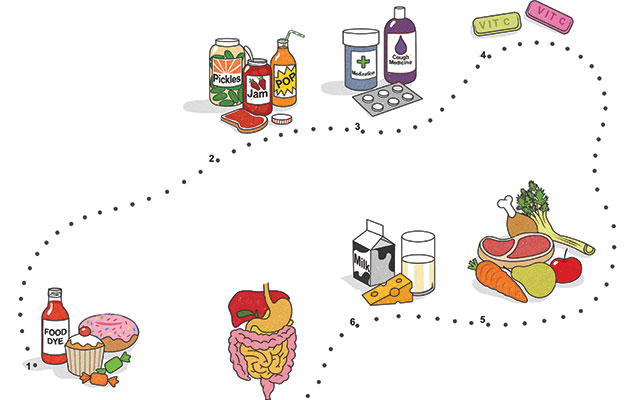A growing body of research suggests music can improve attention, making it a particularly powerful tool for individuals with attention deficit and hyperactivity disorder (ADHD).
Researchers aren’t entirely sure why music improves attention. Some hypothesize that repetitive rhythms hone focus while the changing dimensions of melody and harmony sharpen our ability to switch attention from one stimulus to another.
Yet studies demonstrate music’s effectiveness across a range of attentionally challenged populations, including neurodevelopmentally delayed teens, cognitively impaired adults, and traumatic brain injury (TBI) patients. (Former U.S. congresswoman Gabby Giffords underwent music therapy after suffering a gunshot wound to her head.)
Music seems to be especially effective at engaging parts of the brain that function differently in those with ADHD.
ADHD is a neurological disorder characterized by deficits in attention and regulation. Individuals with ADHD often feel as though their minds — and in some cases, their bodies — can’t sit still. They’re prone to disorganization, distraction, and difficulty following through with tasks that require sustained attention, such as writing papers for school.
Music seems to be especially effective at engaging parts of the brain that function differently in those with ADHD.
When it comes to mental stimulation, the ADHD brain acts a lot like Goldilocks: Too little stimulation leads to boredom and restlessness (which is why kids with ADHD have difficulty focusing in calm, quiet spaces); too much can overwhelm.
Music seems to help ADHD brains find that just-right place, allowing people to settle on the task at hand.
Crucially, listening to music may also help direct the flow of their attention from one task to the next instead of hyperfocusing on a single activity — a common behavior among individuals with ADHD.
ADHD brains also suffer from dopamine deficits, which can contribute to mood instability and a tendency toward impulsive pleasure-seeking, neither of which are conducive to concentration. Functional magnetic resonance imaging studies indicate that music triggers the brain’s dopamine-reward response, which may help boost and stabilize the listener’s mood.
Certain types of tunes seem especially well suited to strengthening attention. Studies suggest that classical music both improves mood and offers ADHD brains that just-right amount of arousal.
Though the evidence remains anecdotal, some individuals with ADHD recommend binaural beats and 8D music. Binaural beats incorporate two distinct frequencies — one in each ear — which tricks the brain into creating a third frequency. 8D music uses audio effects to make it seem as though sounds are coming from different directions. Both are believed to promote calm and focus.
This article originally appeared as “ADHD Music: Finding Focus With Song” in the November/December 2023 issue of Experience Life.





This Post Has 2 Comments
As an adult with ADHD, I can attest to the profound impact music has on my own concentration. In ADHD communities I’m part of, several people agree that music helps with productivity. Interestingly enough, those same people indicate that each person has their own flavor of music genres and formats that move their brain into that sweet spot of calm focus. It would be nice to see classrooms and workplaces accommodate ADHDers by allowing them to wear their noise-cancelling headphones and listen to music during individual work times. It would create the right soundscape for productivity.
Reading about attention deficit and hyperactivity disorder helps me understand how some of my childhood issues were intuitively managed with music. Growing up in the 1960s, I found music calmed me through my teenage angst. The effect of melodies and rhythm on the body, mind, and spirit have helped me inspire and connect to people. It’s much better than medication.